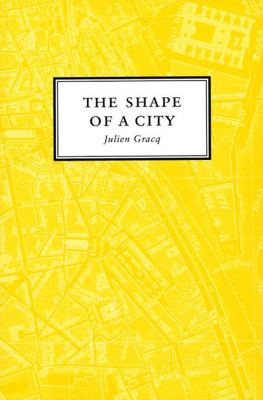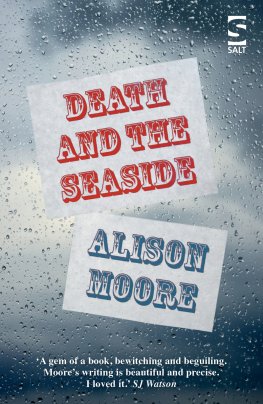For Roger Veill
They that have power to hurt and will do none,
That do not do the thing they most do show,
Who, moving others, are themselves as stone,
Unmoved, cold, and to temptation slow;
They rightly do inherit heavens graces,
And husband natures riches from expense;
They are the lords and owners of their faces,
Others but stewards of their excellence
Sonnet XCIV
WILLIAM SHAKESPEARE
Contents
A DARK STRANGER
During these fleeting, drifting days of late autumn I recall with special fondness the paths on that little beach at the close of the season, suddenly strangely overwhelmed by silence. Its barely alive in its itinerant idleness, that hotel where the influx of women in light dresses and unexpectedly triumphant children will recede with the equinoctial tides and, like September breakers, suddenly reveal the brick and concrete caves, the rocky stalactites, the childish, appealing structures, the over-groomed flower beds that the sea breeze will devastate like dried-up anenomes; everything which, suddenly abandoned to a vacant heart-to-heart with the sea will, for want of reassuring frivolity resume its unassailable and loftier status of a ghost in broad daylight. On the seafront, dead, glassed-in verandas, their wrought ironwork eaten away by the salty scourge, fret themselves like looted jewellers shopssuddenly, incredibly, the worn out, washed out blue of shutters closed on unseeing windows holds back the ebb of life thats responsible for this decay. Yet in the sourish sunlight of the October morning, sounds spring up, strangely detached from the silence in the same way the solemn movement of a sleeper frees him from a dreamthe white gate of a wooden fence creaks, a doorbell echoes loudly from one end of the eager street to the other. I must be dreaming. Who has come calling here with such ceremony? Theres no one here. Theres no one anymore.
I disappear behind the rows of villas above the amphitheatre of the beach, walk up and down avenues buried beneath the trees on soft brown soil muffled by sand and pine needles. As soon as I turn the corner of the beach an equivocal silence sets in. The rumbling of thesea reaches the depths of these avenues hollow green pathways only hesitantly, stirring me like the rumble of rioting at the bottom of a sleepy suburban garden. On this background of dark mineral greenery, of pine and cedar, silver birches, poplars suddenly blaze out, reduced to faint golden smoke, spreading their red flames like fiery caterpillars consuming a piece of paper. Soon the great maritime grisaille will restore this whole scene to primary colourshere and there a subtle pigmentation takes hold, puddle by puddlesalt blanches the surface of walls, turns metal railings a jarring red, the sea breeze scatters sand on floors through cracks in the doorsa sudden, unexpected encroachment pervades this little town, harsh and grey like the salt and the coral, with the vague traces of a fire gone cold, of a dried-up tidal wave.
There are colourless afternoons, closed off, sunk beneath hopelessly unchanging skieslike the poor fairy-tale world inside the glass walls of a conservatorydeprived of that changeable layer of skin that the sun creates for them and which prepares them as best it can for life, when the consciousness of the all-powerful reserve of things wells up in me to the point of horror. Just as after the performance is over I sometimes imagine slipping back into an empty theatre at midnight and, in the dark auditorium, catching the scenery refusing to play the game for the first time. Streets emptied for the night, a theatre that reopens, a beach abandoned to the sea for a season weave conspiracies of silence, wood and stone as effective as five thousand years and all the secrets of Egypt for unleashing spells over an open tomb. Hands distracted, holding keys, playing with rings, hands skilled with weights that make tombstones turn, move the bezel which makes you invisibleI became this ghostly stealer of mummies when, as a gentle breeze blew in off the sea and the sound of the rising tide was suddenly more perceptible, the sun finally vanished into the mist on that afternoon of 8th October 19
T HIS MORNING , a walk to Krantec. Quite deserted around the pier in the little harbour, the beach that stretches away to the left totally empty, dunes running beside it covered in dried rushes. There was heavy weather out to sea, an overcast grey sky, great leaden waves crashing on the beach. But between the piers the silence of the swell against the stone side-walls was incredible; great big tongues, urgent and rough, yet agile, unsettling, shooting up suddenly like anteaters tongues as they reached the sea wall without warning, exploded in mid-air in an ice-cold spray. I had lunch in an empty restaurant all on its own in the middle of the dunes, the raised floor made a hollow sound, the vast dining room (the local youth must dance there on Sundays) with its strings of cheerless paper flags, its varnished pine boards, reminded me less of parties than of a ships wardroom , the Sailors Rest, everything which, as so frequently in this part of the world, (lifeboat sheds for barns, outdoor pantries built onto every house in the street) brings with it that unavoidably gloomy, mean, rule-bound character that so often gives the Breton countryside a mournful look.
As I came back along the path by the shore I ran into some youngsters from Krantec walking in pairs, coming for the dancing. Serious, almost solemnthe girls hair flew in the strong windhands in pockets; it wasnt warm. A lonely pathway nonetheless. In the distance, from the dunes that hang over the track, above the low line of the roof of Le Retour du Pcheur you could see foam flying with the seas every salvo. An unusual pleasure spot. Then, among the muffled bombardment of the waves, in a brief ray of sunshine I heard the tinny sound of a record playing whichabove the uneven bass note of the tide, in the midst of this great echo chamber of clouds and waterwasnt in any way offensive. Yet one girl followed along the seashore all alone in the opposite direction to the stream of ants. Idle, slow, indifferent, occasionally bending down to pick up a shell, a piece of driftwoodor just looking vaguely out to sea, and at those moments her hands always shifted stupidly to her hipswhat thought was there in that rustic head that was genuinely her own? In real landscapes just like in paintings Im constantly intrigued by the idlers who appear at midday or twilight, spit in corners, throw stones, hop and skip or ferret out blackbirds nests, sometimes darkening a whole area of the landscape with gestures as unfathomable as its possible to be.
After strolling back I had dinner alonethe in crowd had already left for the casino.
After dinner, stretched my legs on the beach for a moment. A fine beach, melancholy and magnificent, the windows on the seafront set ablaze by the sunset like an ocean liner lighting up. The empty sand, still warm, like a beach of human flesh which you want to walk over, cover, to soil as artlessly as it does itself. And yet the air is so pure, so purely cold, so clear, as if constantly washed by unseen showers. A gentle gurgling in a furrow in the sand (the tide is going out) tries hard to turn the ground into a flooded landscapethe almost human sound of channelled water cutting into it like a woodsmans axe. I took a deep breath. Ah, what a mouthful! Sand drifted across the dunes, the air snapped like great banners, standing up against the cutting edge of the wind with a feline flick of the tail. And out on the horizon the hurried toing and froing of the waves, always this commotion of foam, this riotous churning, a confusion of clouds lined with squalls and sunshine, this fierce









